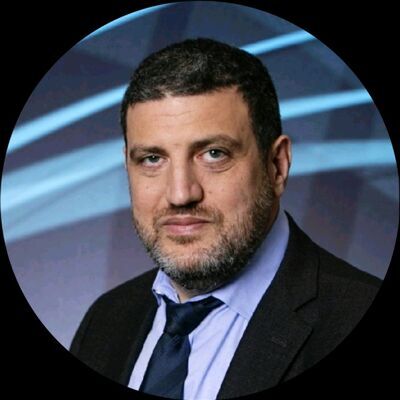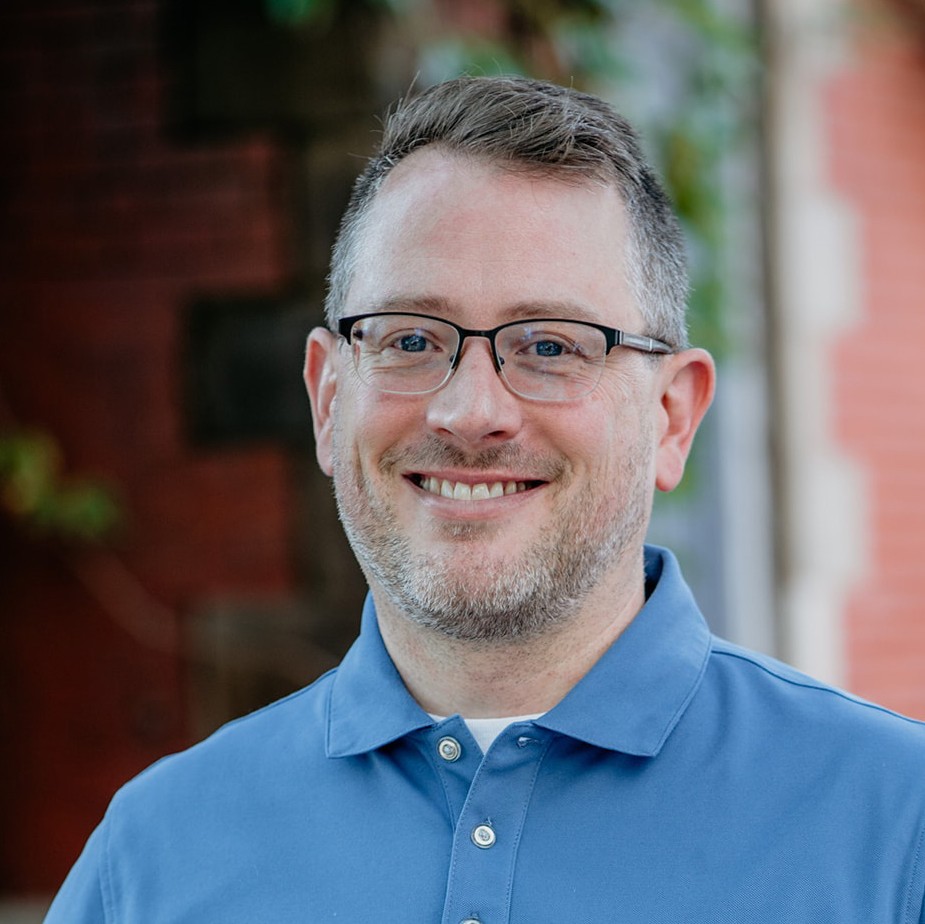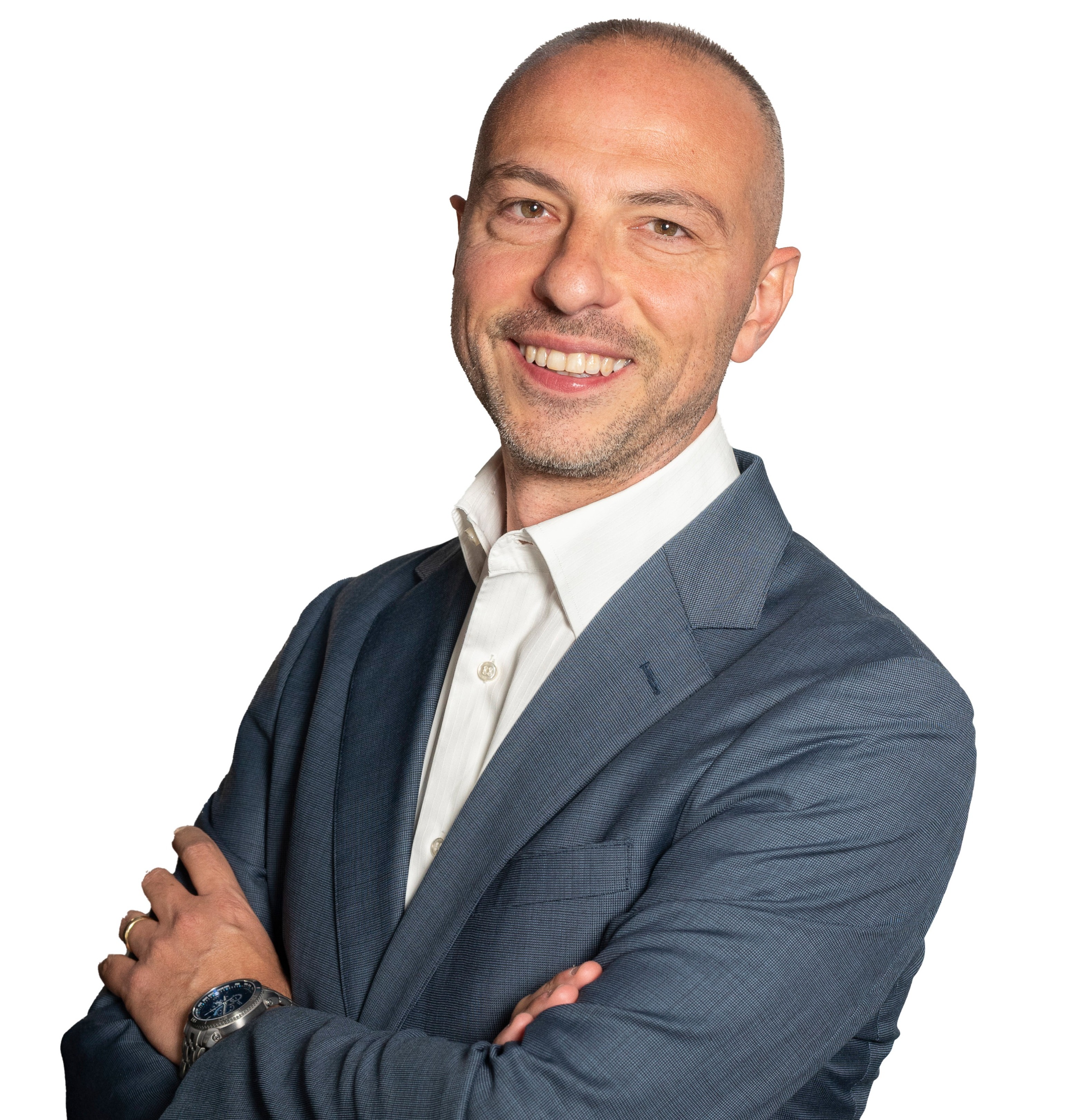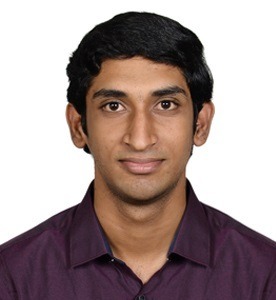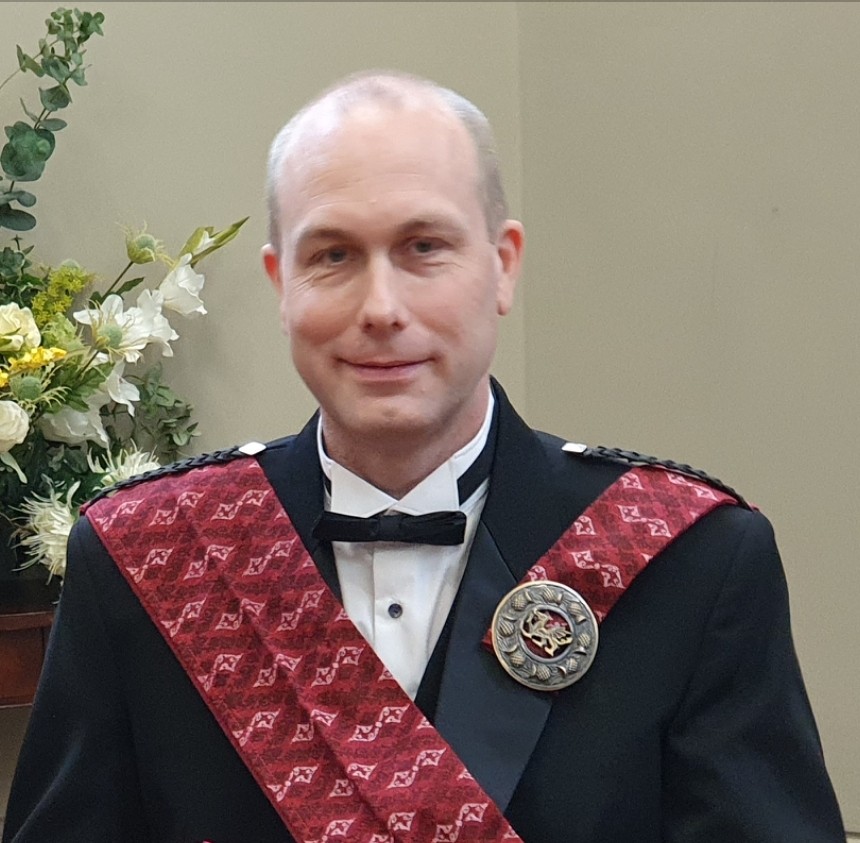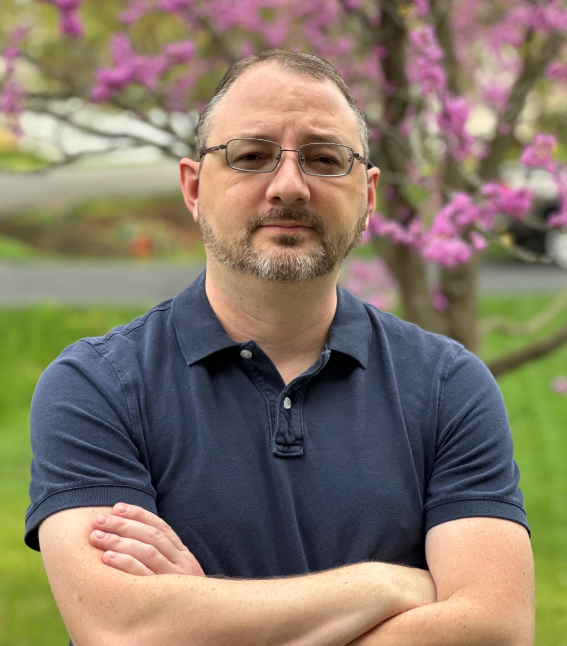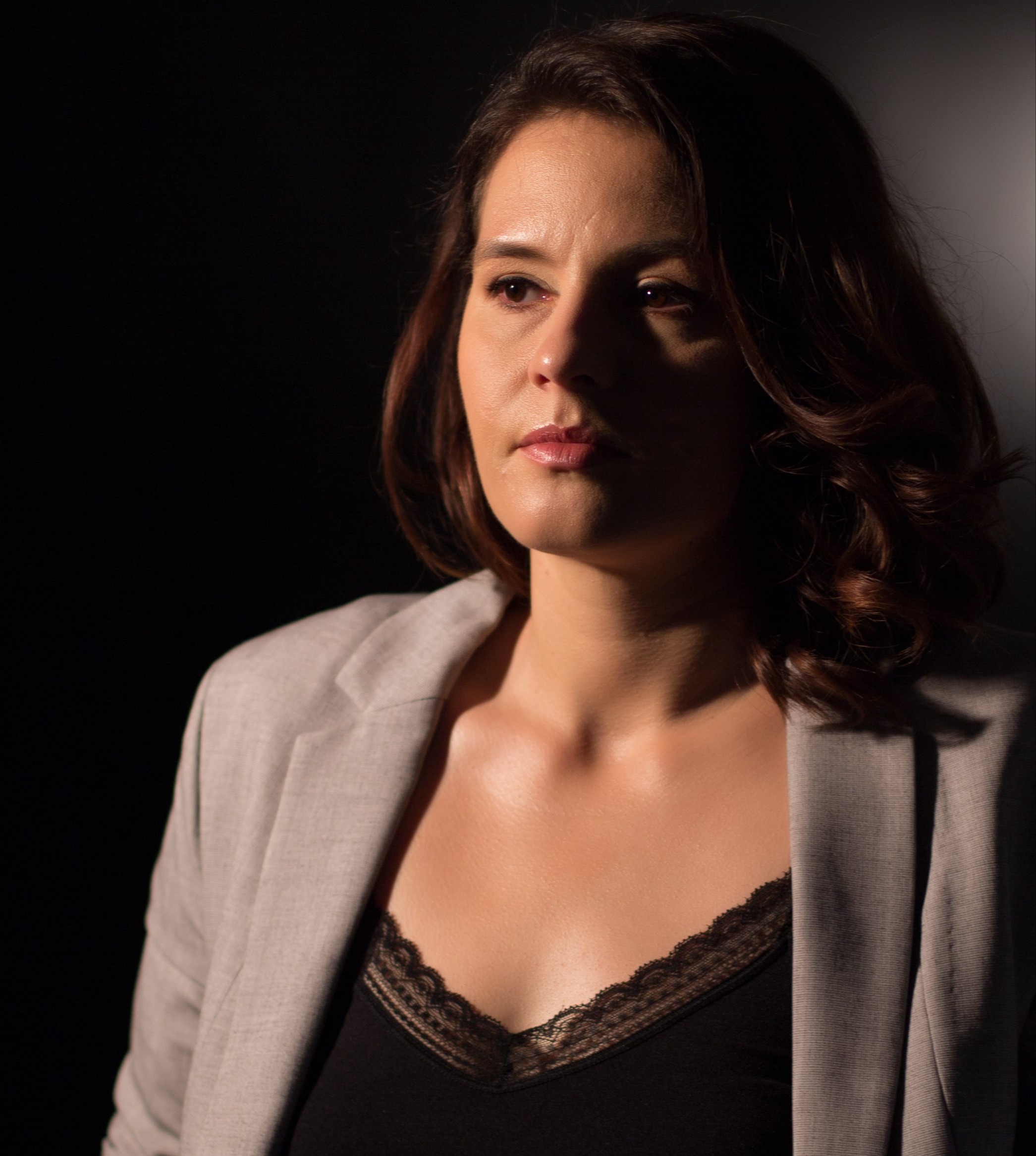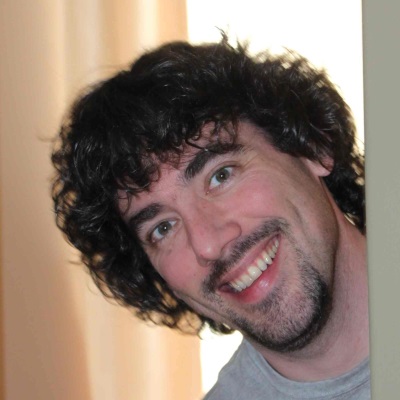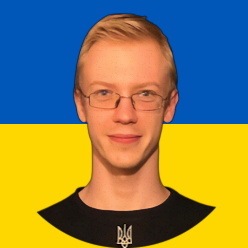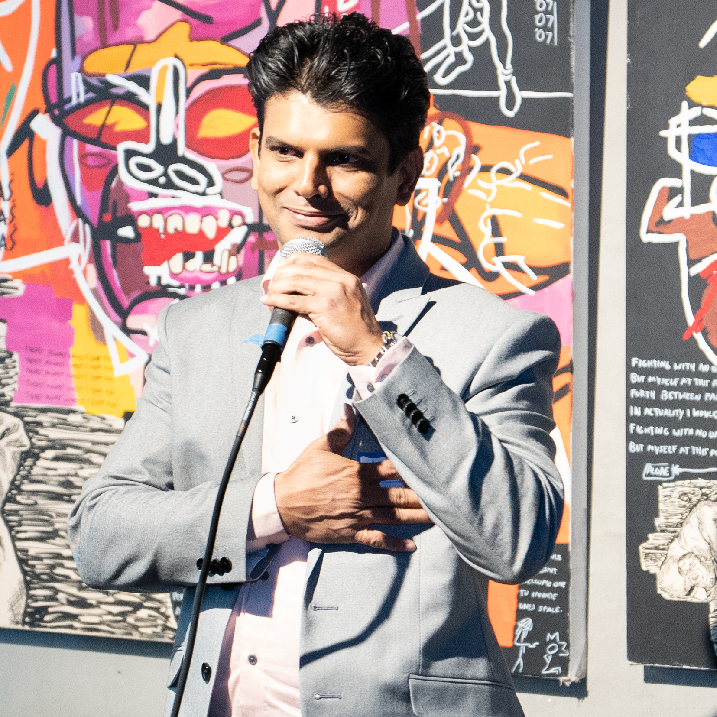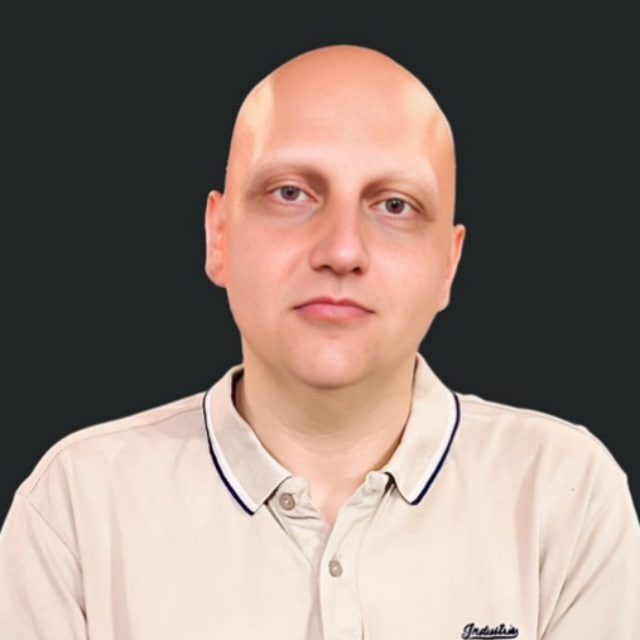The following navigation has top level toggles that can be engaged with by focusing on them and pressing the enter key. Their respective sub-navigation can then be navigated through with the tab key. Upon reaching the last node in the sub-navigation the next top level node will be focused if there is one.

Find out more about the Board Candidates
Before casting your vote on OpaVote, take some time to get to know the candidates for this year’s .NET Foundation Board of Directors elections.
We’re excited to have a diverse group of outstanding candidates. Explore their profiles, watch their candidacy videos, and learn more about their vision for the community.
Jonathan "J." Tower
Savino Carlone
Dr. Durgesh Singh
Divyesh Govardhanan
Chris Pulman
Joshua Arzt
Irina Dominte (Scurtu)
Peter Ritchie
Vladislav Antonyuk
Aneesh Gopalakrishnann
Ali Kolahdoozan
Peter Smulovics
Biography
Peter Smulovics joined Morgan Stanley after more than a decade at Microsoft, where he contributed to creating .NET, C#, and Azure, and enhanced Visual Studio, SQL Server, Dynamics, HoloLens, and more. A seasoned expert in Microsoft technologies, he now leads Windows and .NET Development Practices in the Software Development Experience organization.
His focus spans both server-side (opinionated abstraction platforms) and client-side (hybrid open-source desktop containers for .NET/Web UI) development, along with .NET build tooling, framework maintenance, and more.
Peter is a publicist for IDG and The Architecture Journal, author and co-author of several books, and a frequent presenter at conferences including TechEx, DevDays, TechReady, Agile DevCon, TechNet, Meta, EY, VRARA, FINRA, and many others.
He is a founding member of AgileAlliance, Architecture Forum, Architect Academy, and .NET Forum, and has contributed as a part-time tech lead to OSS projects like NHibernate, NVelocity, and several others. He holds certifications from Microsoft, Ariba, JBoss, and SiteCore, and has also served as a trainer on several technologies.
Recognized as both a Microsoft Most Valuable Professional and a FINOS Ambassador at The Linux Foundation, Peter co-chairs two special interest groups at FINOS—Open Source Readiness and Emerging Technologies (covering quantum technology, spatial computing, space tech, 4D printing, and more). He also serves as vice-chair for the Technical Oversight Committee.
Working in IT since 1995, Peter has project experience across diverse fields including FMCG, public sector, energy, telecom, pharma, mobile, music, security, and finance. Beyond his professional roles, he is active in many organizations and is a true renaissance man—involved with innovation, enabling people, cloud, mentoring, podcast production, and more. He is also the main organizer for the FSI Autism Hackathon.
Jonathan "J." Tower
Biography
Jonathan “J.” Tower is a founding partner of Trailhead Technology Partners, a custom software consulting company distributed across the U.S., Europe, and South America. A Microsoft MVP in .NET for 11 years running, J. is also a frequent speaker at conferences worldwide, where he shares his experiences in building software and teams.
Beyond his professional work, J. has devoted much of his time to strengthening the communities he is part of. He has served on multiple nonprofit boards and for over a decade has been president of Beer City Code, Western Michigan’s largest professional software conference.
When he’s not working with software or community, J. is usually exploring the outdoors. He has visited 58 of the 63 U.S. national parks, and he’s passionate about adventure, photography, and storytelling in all its forms—skills he tries to bring back into the way he teaches, mentors, and leads in the .NET and software communities.
Member Project Value
What specific, tangible support—beyond marketing—do you believe the Foundation should offer to make membership indispensable for a .NET open-source project?
I believe one of the most important ways the Foundation can support its member projects is by actively listening and responding to their needs. Getting regular feedback from projects about what resources or guidance would be most useful can help the Foundation focus on tangible, high-impact support.
Beyond providing practical tools or infrastructure, I’d like to help foster a stronger community where peer mentoring can happen naturally between people managing open-source member projects.
Maintainers often have the most in common with each other and the most to offer, from governance advice to community-building strategies. The Foundation could facilitate structured opportunities for maintainers to connect, share best practices, and mentor one another. This would make membership not only useful in a practical sense but also rewarding through peer engagement and mutual support.
Funding Diversification
Describe one specific, actionable strategy you would champion to broaden the Foundation's appeal and secure new funding sources.
One way the Foundation could broaden its funding base is by creating tiered individual membership levels similar to the corporate ones that already exist, each with different annual support amounts. Each tier could offer a range of benefits that make supporting the Foundation rewarding and visible.
For example, higher tiers could include things like Microsoft swag, software licensing, or Azure credits. Members could also be entered into a drawing for one-hour Teams calls with popular .NET or Microsoft team members such as Scott Guthrie, Scott Hanselman, David Fowler, Mark Russinovich, Scott Hunter, Daniel Roth, or Steve Sanderson.
Other perks could include shareable badges to display on social media or personal websites. The idea is to align funding with tangible, desirable benefits, while keeping it fun and community-focused.
This approach allows individuals and organizations to support the Foundation at a level that works for them, provides clear, visible value, and strengthens engagement with the broader .NET ecosystem.
Technical Direction
How should the Foundation balance its relationship with Microsoft while maintaining independence in setting technical priorities?
Balancing the relationship with Microsoft while maintaining independence requires a clear framework for setting priorities that serve the broader community. I would advocate for a process that:
Identifies community-driven priorities: Actively solicits input from project maintainers and contributors about which technical areas need attention.
Leverages Microsoft as a partner, not a sole guide: Microsoft can provide resources and guidance where helpful, but the Foundation should retain autonomy in deciding which projects, libraries, or standards to prioritize.
Establishes transparent review cycles: Regularly evaluates emerging trends, project health, and ecosystem needs to ensure technical guidance remains relevant and community-focused.
This approach positions the Foundation as both a collaborator with Microsoft and a champion of the community’s needs, ensuring technical decisions reflect the interests of the broader .NET ecosystem rather than any single stakeholder.
Transparency and Decision-Making
The Foundation has faced community backlash in the past. When a controversial decision is necessary, what process would you champion to ensure community feedback is genuinely considered and the final decision is communicated transparently?
One of the biggest lessons I’ve learned, both running a consulting company and participating in the software community, is that people can handle tough decisions, even unpopular ones, as long as they feel the process is fair and their voices are heard. Problems arise when decisions feel top-down, rushed, inconsistent, or unexplained.
If I were on the board, I’d champion a transparent, predictable process using tools developers are already familiar with, like GitHub. Before any major or potentially controversial decision, we could track it as an issue on GitHub, giving members and project maintainers a place to provide feedback, suggest alternatives, or raise concerns.
When the board reaches a decision, we could publish it there as well, including context, reasoning, and alternatives considered. Even if the final choice differs from what some hoped for, developers would be able to see how their input was evaluated and why the outcome was reached.
I think of it a bit like a code review. The goal isn’t just to merge changes, it’s to build trust in the process. By creating these transparent feedback loops and clearly communicating decisions, the Foundation can strengthen engagement, build trust, and avoid misunderstandings.
Savino Carlone
Biography
Born in 1977 in Turin to a working-class family, I’ve followed a lifelong path of curiosity, creativity, and code. Though I never completed my engineering degree, I’ve built a 25-year career as a backend developer specializing in C#, C++, and SQL, with deep experience in enterprise software and high-performance systems for sports broadcasting, banking, and ERP platforms.
I’ve worked with companies like Deltatre, Banca Sella, and Dylog, and currently lead development on a web-based ERP called Fattutto, built remotely with a small, agile team. My passion for tech extends beyond the keyboard: I co-lead the Torino .NET Users Group under the .NET Foundation with almost 1,200 members, collaborate with Codemotion, and co-host the monthly Devs Book Club, where we review books on software development.
Outside of work, I’ve written for national sports publications, coached youth football since 2008, and play keyboard for fun. I have a wife and a 13-year-old son. I live with two coronary stents and a relentless drive to turn half-successes into full stories. I believe in community, mentorship, and the power of software to connect people—and I’d be honored to bring that spirit to the .NET Foundation board.
Foundation Improvement
What do you think the Foundation can do better, and what are your specific plans for making those improvements?
The Foundation must become more present and approachable. I would establish Regional Community Leads—local ambassadors who serve as direct contact points for Meetup groups and contributors. This would eliminate the sense of distance and make engagement more personal.
I’d also introduce asynchronous participation formats to accommodate global time zones and launch a “Foundation Pulse” dashboard to track project health, funding, and engagement. Quarterly town halls would ensure transparency and collective decision-making.
Member Project Value
What specific, tangible support—beyond marketing—do you believe the Foundation should offer to make membership indispensable for a .NET open-source project?
Membership should offer real, operational value. I propose a “Member Project Toolkit” including GitHub Actions credits, legal templates, and access to mentorship. A “Project Spotlight” section on the Foundation’s homepage would showcase member projects.
I’d also build partnerships with private organizations to offer discounts on development tools and conference tickets, making membership not just symbolic, but strategic.
Community Onboarding
What is one concrete program you would champion to make it easier and more rewarding for new, individual developers to get involved with .NET Foundation projects?
I would launch a “First PR Fellowship”—a guided program that pairs new contributors with experienced mentors to help them land their first pull request.
To expand impact, I’d also promote a “Bring Your Company” initiative, encouraging developers to onboard their employers into open-source contribution. This helps shift the legacy mindset from proprietary code to community-driven innovation.
Funding Diversification
Describe one specific, actionable strategy you would champion to broaden the Foundation's appeal and secure new funding sources.
I would launch a “Corporate Ally Program” where companies sponsor the Foundation in exchange for visibility, access to talent, and community goodwill.
This would be supported by a “.NET Impact Fund” with transparent allocation toward diversity, infrastructure, and community programs. By telling better stories—showing how .NET open-source powers real-world solutions—we can attract broader support.
Technical Direction
How should the Foundation balance its relationship with Microsoft while maintaining independence in setting technical priorities?
The Foundation should maintain a collaborative but independent stance. I propose a Technical Advisory Council composed of community leaders and Microsoft engineers to align priorities while preserving autonomy.
Additionally, geographically distributed committees would ensure diverse perspectives and reduce over-centralization. Independence starts with representation.
Transparency and Decision-Making
The Foundation has faced community backlash in the past. When a controversial decision is necessary, what process would you champion to ensure community feedback is genuinely considered and the final decision is communicated transparently?
I would introduce a “Community Review Protocol” with open RFCs, structured feedback windows, and post-decision reports.
To make updates accessible, I’d launch a monthly “Foundation Journal”—a PDF-style publication summarizing decisions, project updates, and community highlights.
Transparency isn’t just about visibility—it’s about accountability.
Dr. Durgesh Singh
Biography
Dr. Durgesh Singh is an Assistant Consultant at Tata Consultancy Services, New Delhi. With deep expertise in .NET, Azure, and cloud-native data engineering, he bridges the worlds of technology and creativity.
A published inventor in AI-driven risk management and a mentor to aspiring engineers and authors, Durgesh is also a gifted poet whose verses explore longing, silence, and the emotional echoes of incomplete dreams.
Originally from Ballia, Uttar Pradesh, his journey from small-town roots to global impact reflects a quiet determination to inspire through both precision and poetry.
Foundation Improvement
What do you think the Foundation can do better, and what are your specific plans for making those improvements?
The .NET Foundation has made significant strides in supporting open-source projects, but there’s room to grow in three key areas: governance transparency, developer mentorship, and cross-community collaboration.
As someone who bridges enterprise engineering and creative publishing, I believe the Foundation must evolve from being a passive steward to an active enabler. My specific plans include:
Establishing a Contributor Council: A rotating group of active contributors from diverse backgrounds who advise on Foundation priorities, ensuring grassroots voices shape decisions.
Launching a “Code to Community” Fellowship: A mentorship initiative pairing seasoned engineers with emerging contributors, especially from underrepresented regions like small towns in India, Africa, and Latin America.
Creating a Global Collaboration Grid: A platform that maps .NET projects by domain (e.g., healthcare, education, fintech) and encourages cross-project synergies, reducing silos and amplifying impact.
These steps would make the Foundation more inclusive, transparent, and strategically aligned with the evolving needs of the global .NET ecosystem.
Community Onboarding
What is one concrete program you would champion to make it easier and more rewarding for new, individual developers to get involved with .NET Foundation projects?
To make onboarding more rewarding, I would champion a program called “First Commit, Lasting Impact.”
This initiative would include:
Interactive Onboarding Portals: Personalized pathways for new contributors based on skill level, interest area, and preferred language.
Micro-Contribution Challenges: Weekly tasks that take less than an hour to complete, helping newcomers build confidence and earn recognition.
Contributor Storytelling Series: Spotlighting journeys of developers from first pull request to project leadership—especially those from non-traditional backgrounds.
The goal is to transform onboarding from a technical hurdle into a narrative of belonging, where every developer feels seen, supported, and celebrated.
Divyesh Govardhanan
Biography
Divyesh Govardhanan is a Technical Team Lead at Cloud Assert Technologies, with nine years of experience designing and delivering enterprise solutions using the .NET ecosystem. His expertise spans ASP.NET Core, ASP.NET Framework, Web API, Entity Framework, cloud-native architectures, and Infrastructure as Code with Azure and Terraform.
A certified Azure DevOps Engineer Expert, Azure AI Engineer Associate, Azure Developer Associate, MVC Developer, and CompTIA Security+ professional, Divyesh brings a strong focus on secure, scalable, and innovative development practices. Since 2016, he has led Agile teams building hybrid cloud solutions, bridging business and technical needs while mentoring engineers and fostering inclusive growth.
Based in Virginia, U.S., Divyesh offers a global perspective and a passion for advancing open-source collaboration. His vision for the .NET Foundation centers on supporting maintainers, expanding community reach, and guiding the ecosystem’s evolution with emerging technologies like AI and cloud-native development.
Foundational Improvement
The .NET Foundation must rebuild trust through transparency and clear governance. Today, contributors often lack visibility into decision-making and project ownership rules. My plan includes:
Publishing Board Minutes with only sensitive items redacted.
Clear Decision Frameworks so project governance and policy changes are predictable.
Quarterly “State of the Foundation” updates covering strategy, finances, and major initiatives.
Equally important is clarifying project governance. Maintainership should be respected, with no changes made without explicit maintainer approval. I will also push for clearer IP and ownership documentation so contributors know exactly what rights they retain.
By focusing on transparency, accountability, and respect for maintainers, we can rebuild community trust and make the Foundation the most reliable steward of .NET open source.
Member Project Value
Membership should provide tangible, operational value. My vision includes:
Enhanced Technical Infrastructure: ready-to-use CI/CD pipelines, automated security scans, performance monitoring, and negotiated cloud credits.
Legal & Compliance Services: access to legal advisors, GDPR and accessibility compliance tools, and proactive IP protection.
Growth Programs: mentorship matching, professional development workshops, and grant-writing assistance to help projects sustain themselves.
These services reduce maintainer burden, strengthen community resilience, and make membership genuinely indispensable.
Community Onboarding
I will champion a “.NET Foundation Academy” program to make contributing easier and more rewarding.
Project Contribution Bootcamps: monthly hands-on workshops teaching Git, testing, and contribution workflows.
Mentorship Pairing: 90-day guided contribution programs matching newcomers with experienced maintainers.
“First Contribution” Recognition: badges and visibility for first-time contributors.
To ensure inclusivity, I’d promote multilingual documentation, beginner-friendly issue pipelines, and timezone-inclusive events. I’d also partner with universities and coding bootcamps to integrate real Foundation contributions into coursework, turning students into contributors.
Funding Diversification
The Foundation must reduce reliance on a handful of sponsors. My actionable strategy includes:
Enterprise Services: offer consulting, integration support, and Foundation-certified training programs to enterprises.
Community-Driven Revenue: premium membership tiers, crowdfunding for targeted initiatives (like security audits), and expanded corporate partnerships with tool vendors and training providers.
Grants & Innovation Funding: apply for grants from technology foundations (Mozilla, Linux Foundation) and government innovation programs worldwide.
This diversified funding base ensures financial sustainability and independence, allowing the Foundation to serve both community and corporate needs.
Technical Direction
Microsoft is a key partner in .NET, but the Foundation must set priorities through the community. I propose:
Independent Advisory Board: bring in stakeholders from non-Microsoft enterprises and community projects.
Community-Driven Roadmaps: use open RFC processes and an annual technical summit to align priorities with real developer needs.
Conflict of Interest Safeguards: require recusal when Microsoft employees vote on matters directly tied to Microsoft’s interests.
This approach preserves collaboration while ensuring the Foundation remains an independent steward of .NET.
Transparency & Decision-Making
When tough or controversial decisions arise, the process matters as much as the outcome. I would implement:
Pre-Decision Public Input: 30-day comment periods for major policy shifts.
Decision Rationale Documentation: publish clear explanations, including dissenting views.
Community Forums: monthly open town halls for direct Q&A with board members.
To ensure accountability, I’d advocate for community-driven board performance reviews and annual policy impact reports. Transparency, communication, and accountability are the keys to regaining trust.
Closing Statement
My vision is to restore transparency, deliver tangible project value, and grow an inclusive global community. With nine years of technical leadership, Microsoft Azure certifications, and deep experience in open source, I’m ready to help the .NET Foundation thrive.
Chris Pulman
Biography
I’ve been building applications with .NET since the very first beta in 1999 — starting with VB.NET before quickly embracing C#, which has been my language of choice ever since.
- Make .NET Foundation projects more first-time contributor friendly, lowering barriers to entry and encouraging new voices.
- Establish consistent, high-quality documentation structures across projects, while preserving each project’s unique branding.
- Create a centralised hub where all Foundation projects — and those on the path to joining — can be discovered, explored, and celebrated.
My journey with technology began long before .NET — as a child fascinated by early computers, and later at engineering school, where I learned to program using paper punch cards. That spark has never faded. Today, I channel that same curiosity into teaching others, writing articles, and sharing practical knowledge that bridges industrial engineering and modern software development.
Together, we can strengthen our projects, support our maintainers, and empower the next generation of contributors.
Member Project Value
What specific, tangible support—beyond marketing—do you believe the Foundation should offer to make membership indispensable for a .NET open-source project?
Contributor Growth Tracks – Define clear progression paths for contributors:
First-Time Contributor → Regular Contributor → Trusted Collaborator → Maintainer Candidate.
Includes electronic badges, mentorship, and invitations to contributor events.Issue Triage-as-a-Service – Foundation volunteers or interns help projects triage stale issues, label them appropriately, and surface beginner-friendly issues. This frees up maintainers to focus on core work.
Contributor Visibility Hub – A section on the .NET Foundation website showcasing available issues with a 3-stage status: Awaiting Assignment → Assigned (with Name) → In Progress. Issues are removed once complete.
Funding Diversification
Describe one specific, actionable strategy you would champion to broaden the Foundation's appeal and secure new funding sources.
Corporate Sponsorship Program – A tiered model where companies fund specific initiatives aligned with their values (e.g., sustainability, education, diversity in tech).
Benefits per tier:
Recognition on Foundation channels and events.
Priority access to contributor training programs.
Co-branded community outreach (hackathons, mentorship drives).
Placement Program Tier – Enables companies to assign employees as open-source contributors, mentored by Maintainers or Foundation members, providing both upskilling and OSS impact.
Technical Direction
How should the Foundation balance its relationship with Microsoft while maintaining independence in setting technical priorities?
The Foundation should embrace Microsoft’s contributions while asserting its identity as a steward of community-driven innovation. Maintainers, contributors, and board members should evaluate and publish quarterly guidance on ecosystem needs.
Microsoft remains a vital partner, but the Foundation must serve as the voice of the broader open-source community.
Transparency and Decision-Making
The Foundation has faced community backlash in the past. When a controversial decision is necessary, what process would you champion to ensure community feedback is genuinely considered and the final decision is communicated transparently?
Share Early – Publish a summary of the issue and potential options before a decision is finalized.
Listen Openly – Host a time-boxed GitHub Discussion or community call to gather feedback.
Close the Loop – Share a final decision post explaining what feedback was received, what was incorporated, and why.
This ensures transparency, accountability, and community trust—even when opinions differ.
Joshua Arzt
Biography
My professional career began in the early 2000's where I discovered .NET and all it had to offer in its early days. Using that framework paired with my maturation in software architecture helped shape how I approach challenges — with curiosity, precision, and a focus on making technology practical and reliable. Along the way, I’ve led teams, modernized systems, written my own software in performance metrics. and helped organizations adapt to change, but what I value most is working with people: mentoring engineers, collaborating across disciplines, and finding ways to connect technical work to real human impact. I bring both experience and perspective — the ability to see the big picture while never losing sight of the craft that drew me to this field in the first place.
Foundation Improvement
What do you think the Foundation can do better, and what are your specific plans for making those improvements?
I think the largest challenge is awareness - not for .Net tried and true consumers like us, but those that consistently believe:
C# is a copy of Java and not as good - it's clearly not that simple and just not true. There are plenty of examples in the community that disprove this claim - yet it is still being made.
.Net languages are so much slower than C++ and Rust, that you should just use those instead. This lacks not only modern metrics (it's starting to become hard to measure at all), but appropriate use cases.
How .Net languages can provide value to the entire community, not just those that chose to follow. Now that .Net is multi-platform, there really are no limits to its potential and with this fantastic community supporting it, there is no reason to dismiss it due to old school gatekeeping.
How would I improve it - double down on what we are doing. It comes down to showing your cards and demonstrating value. Let's go where all development is, not just places with developers interested in .Net. We need to show communities - especially the Linux community, that .Net is very effective on their platforms and can achieve value and performance where other languages either could not or do not have the same level of support. I will sell C# until its (or my) last days on Earth. It's just that good.
Member Project Value
What specific, tangible support—beyond marketing—do you believe the Foundation should offer to make membership indispensable for a .NET open-source project?
This might not be feasible - but inside track with Microsoft. Would be great to know for example about Github's future. That has been a really hard topic for the community and it felt like it fell out of the sky. Another would be plans around the future of Windows App support considering MS has tried to kill WPF for over a decade and it's likely going to outlive UWP, Xamarin, and MAUI.
Also, heads up on Azure supported features and changes would be nice considering how prevalent they are to the community.
Community Onboarding
What is one concrete program you would champion to make it easier and more rewarding for new, individual developers to get involved with .NET Foundation projects?
Marketing and Promotion. Knowing there is support to get your projects seen makes the work more appealing to new devs. It's too easy to get lost in the ether so extra support would be nice.
Funding Diversification
Describe one specific, actionable strategy you would champion to broaden the Foundation's appeal and secure new funding sources.
This is not an area I can advise on. I am an engineer.
Technical Direction
How should the Foundation balance its relationship with Microsoft while maintaining independence in setting technical priorities?
Knowledge sharing - MS provides the Foundation with upcoming releases and overall plans for the .Net Framework(s) while the Foundation provides community feedback to help inform and potentially shape new product offerings. Neither side should be dictating how the other runs their operations. Autonomy is key to the Foundations success.
Transparency and Decision-Making
The Foundation has faced community backlash in the past. When a controversial decision is necessary, what process would you champion to ensure community feedback is genuinely considered and the final decision is communicated transparently?
If you look at situations like Hot Reload or Github Organizations in 2021, I think that stems highly from poor communications.
If we need to make the change, vet it with the community clearly calling out the risks and costs (if appropriate) to make it apparent this is not a vanity decision.
Provide a high level schedule or events around the change so it is as clear as we can make it.
Provide enough time for a questions / comments period from the community unless this is an emergency-level change. Then #1 should clearly cover those facts.
Provide periodic notice as we approach the change to ensure the community is aware.
Once the change is made, if feedback is appropriate, set up a retrospective to understand what went well, what could have gone better.
Part of this organization being trusted is that we cannot be sidelined by Microsoft. Whether they created .Net or not, they are a large company with shareholders - and they will often do what is best for those people before anyone else. We cannot assume their decisions are in the best interest of the community. We have to stand strong as the voice of that community and keep .Net on as pure a footing as we can.
Irina Dominte (Scurtu)
Biography
Irina is a Software Architect at Particular Software, a Microsoft MVP for Developer Technologies, and a Dometrain Author. With more than 2000 hours of training, workshops, and conference talks delivered worldwide, she is deeply passionate about empowering developers and shaping the future of the .NET ecosystem.
She is the founder of the .NET Iași User Group, where she has built a vibrant community that connects professionals and students to share knowledge, mentor one another, and grow together. Beyond user groups, Irina actively contributes to the global .NET community through public speaking, mentoring, and writing at irina.codes.
As a candidate for the .NET Foundation Board of Directors, Irina brings a strong focus on community growth, inclusivity, and developer advocacy. She believes the Foundation should empower local communities worldwide, support maintainers and open-source contributors, and help ensure the .NET ecosystem remains sustainable, innovative, and welcoming for everyone.
Foundation Improvement
What do you think the Foundation can do better, and what are your specific plans for making those improvements?
The Foundation has faced challenges that damaged trust and can do better by shifting from control to service.
Things that I would focus on:
Maintainer-first principle – Foundation leaders participate as contributors, not decision-makers in project repositories. No merges or infrastructure changes without maintainer approval.
Clarity of membership models – rewrite contribution and assignment models in plain language, guarantee that projects retain copyright and IP under contribution, and provide a clear exit path.
Rebuild trust through transparency in decision-making – the Foundation could adopt a “decision record” approach, publish decision logs for major governance actions, and be open to community feedback.
Expanding outreach – change the perspective of the broader developer community, which often views .NET as synonymous with Microsoft or limited to Windows. Another focus would be reaching more students and universities to ensure C# is among the programming languages they study.
Transparency and Decision-Making
The Foundation has faced community backlash in the past. When a controversial decision is necessary, what process would you champion to ensure community feedback is genuinely considered and the final decision is communicated transparently?
The Community doesn’t see what’s happening behind closed doors; priorities might feel opaque. More frequent updates, community input, or maybe public roadmaps would help the community perception about the Foundation. I would encourage and foster open discussions and surveys to consult and gather feedback for new policies and models. Also, I would publish clear reasoning behind major decisions (e.g. licensing changes, project exits). This way, the community can see how and why decisions are made, not just that they were made.
The Foundation should be a trusted partner that empowers maintainers, respects autonomy, serves the community with transparency, and promotes the .NET ecosystem.
Member Project Value
What specific, tangible support—beyond marketing—do you believe the Foundation should offer to make membership indispensable for a .NET open-source project?
The Foundation should make membership indispensable by offering practical services that save maintainers time, reduce overhead, and costs. Beyond marketing, I see some areas of tangible value:
Infrastructure support – hosted runners, cloud credits, package hosting, and long-term artifact retention to keep projects sustainable.
Documentation and contributor experience – versioned docs hosting, live samples, contributor license agreement automation, and templates for governance.
Bundled together, these services would mean that joining the Foundation is not just symbolic—it immediately makes a project easier to maintain and more attractive to contributors. Sometimes, at least beginners don’t know how they can contribute to a project, even if they want to.
Community Onboarding
What is one concrete program you would champion to make it easier and more rewarding for new, individual developers to get involved with .NET Foundation projects?
I would find ways to make it easier for new developers to get involved as contributors. Each Foundation project would curate a small set of beginner-friendly issues, paired with short guides and a mentor or “buddy” for the first contribution. To recognize new contributors, the Foundation would highlight them in newsletters and community updates.
This lowers the barrier to entry, creates early wins, and builds a sense of belonging from the very first pull request.
Funding Diversification
Describe one specific, actionable strategy you would champion to broaden the Foundation's appeal and secure new funding sources.
I would allow different sponsorship tiers. Instead of broad tiers, companies could directly fund specific services—such as code signing, security audits, or CI/CD credit.
This could potentially make sponsorship more transparent, directly benefiting maintainers, and broadening appeal to companies that want to see their contributions tied to visible impact.
Technical Direction
How should the Foundation balance its relationship with Microsoft while maintaining independence in setting technical priorities?
Microsoft is a vital partner in the .NET ecosystem, but the Foundation must remain an independent steward of open source. The perception now is that Microsoft is the sole decision-maker, but the right balance is to treat Microsoft as a peer contributor.
Technical priorities should be set through transparent, community-driven processes—surveys, maintainer input, and open decision records—where Microsoft’s perspective is one voice among many.
Peter Ritchie
Biography
Peter Ritchie has been in the software industry for over 3 decades. Peter has spent most of his professional career consulting with clients specializing in distributed applications and agile software development. Peter is a book author, open-source author, international speaker, blogger, and former Microsoft MVP in .NET Development Technologies.
Peter has spoken internationally on a variety of topics including unit test design and management, asynchronous programming, advanced .NET language features and syntax, concurrent and parallel programming, and distributed programming.
He is the author of Refactoring with Visual Studio 2010, Visual Studio 2010 Best Practices, and Practical Microsoft Visual Studio 2015.
Peter is a maintainer of a couple of open-source projects (LongPath, Messaging.Patterns, etc.) and a contributor to many, including Mapperly, Roslyn, AspNetCore.Docs, dotnet SDK, docs-aspire, and dotnet Docs.
He has also been an advisory board member of Microsoft Patterns and Practices: CQRS Journey guidance on command and query responsibility segregation and Enterprise Library.
Foundation Improvement
What do you think the Foundation can do better, and what are your specific plans for making those improvements?
The issue of open-source licensing is a sore point with the community. I aim to work with other board members to understand the .NET Foundation's activities in this area and increase transparency regarding the Foundation's future plans to address licensing.
Regarding licensing, I would like to work with other board members and the community to explore ways to help open-source maintainers be compensated for their work. Part of this effort involves a campaign to educate the community that open-source authors’ efforts to be compensated are not betraying the projects they work on or their community.
Taking open-source maintainers and contributors for granted should be a thing of the past; the .NET Foundation's leadership in this area promotes both the Foundation and the .NET platform.
Member Project Value
What specific, tangible support—beyond marketing—do you believe the Foundation should offer to make membership indispensable for a .NET open-source project?
There are a lot of little things that an open-source project needs in order to thrive and remain current. The .NET Foundation provides infrastructural benefits, such as a code signing service, secret management, and hosting resources. However, the Foundation could further expand its offerings to include secure scanning services like Veracode and SonarQube.
Commercial licenses and integration guidance would go a long way to ensuring .NET Foundation projects are as secure as possible. Additionally, open-source projects are generally maintained by a small group of people, often speaking the same language. Localization resources would enable the .NET Foundation's open-source projects to reach the widest possible audience and increase the influence of the .NET Foundation.
Although open-source projects joining the .NET Foundation are generally well underway, they often require additional contributors. The .NET Foundation could provide contributor onboarding kits that enable the project to bring on new contributors quickly. These onboarding kits would include details on working with some of the exceptional benefits unique to .NET Foundation projects, such as the code-signing service, security audits, and any additional services the .NET Foundation includes as benefits.
Burnout is a serious issue in our industry and in the open-source community. I want to work with the Foundation to provide resources to maintainers, helping them deal with and prevent burnout.
Community Onboarding
What is one concrete program you would champion to make it easier and more rewarding for new, individual developers to get involved with .NET Foundation projects?
I would work with the board and other Foundation members to better understand the specific challenges projects face in getting developers involved.
In general, it can be challenging for a project in need of developers to connect with the developers who have the skills to help. I want to work with the Foundation on ways to match the skills and interests of the community with projects that require specific skills.
Additionally, there is often interest in the community to help open-source projects, but the skills may not be there yet. I want to work with the Foundation on learning programs or mentorships to utilize members who wish to learn and contribute.
Funding Diversification
Describe one specific, actionable strategy you would champion to broaden the Foundation's appeal and secure new funding sources.
I want to work with the Foundation to better understand the funding—both monetary (dues and donations) and donated licenses/time. I would then work with the Foundation on a strategy to reduce expenses through the donation of resources.
Additionally, I would look into increasing contributions from organizations looking to sponsor specific projects.
Technical Direction
How should the Foundation balance its relationship with Microsoft while maintaining independence in setting technical priorities?
I would work with the Foundation to understand how the current relationship with Microsoft is cultivated, taking into account any existing expectations and nuances. I want to first work on any challenges in this area before greatly expanding it.
I believe the Foundation has a unique and focused mandate, but also benefits .NET and Microsoft. The Foundation should be independent enough to follow through with its own goals and objectives. I encourage the Foundation's technical direction to be bidirectional, with equal input from independent Foundation members and Microsoft employees.
A public technical roadmap of the Foundation would detail alignment with the .NET roadmap and how the technical needs of the Foundation members and projects are being addressed in the long term. The Foundation is a successful .NET ecosystem in its own right; the successes and failures of that ecosystem are an excellent source of guidance for .NET.
Additionally, I would champion this process to be transparent, outlining the needs and concerns of both the Foundation and Microsoft, current efforts to accommodate priorities, and any decisions made on the technical direction of the Foundation. I encourage promoting the bidirectional influence by announcing where each party helped influence the other.
Transparency & Decision-Making
When a controversial decision is necessary, what process would you champion to ensure community feedback is genuinely considered and the final decision is communicated transparently?
I believe that the past decisions weren't as transparent as they could be. The community should understand the decisions that the Foundation faces and how those decisions have aligned with the Foundation's goals.
Any organization has to make hard decisions, but it should be transparent and promote how members and the .NET community benefit from those decisions. As far as I can tell, the only way to find out what decisions the .NET Foundation has made is to either mine the Discord channel or search the web. The first option has a high noise-to-signal ratio, and the second option will bubble the controversial decisions to the top, potentially making all decisions appear controversial.
I think the Foundation should make a record of the decisions made. Additionally, the context around the decisions should be made available and promoted. When decisions are necessary, details of the need-to-decide should be published and promoted publicly so the public can proactively contribute feedback instead of after-the-fact backlash. As options become known, they should be added to the information about the need to decide.
I believe this will make the Foundation more transparent, enabling people to better understand the Foundation's goals and motives. If the community is unaware of the need to make a decision and only sees the outcome, they are more likely to disagree.
Vladislav Antonyuk
Biography
My name is Vladislav Antonyuk, and I am a Ukrainian software engineer, lecturer, and PhD in Software Engineering. I have many years of experience building high-quality applications with .NET and modern cross-platform technologies, mentoring developers, and teaching students at the university level. My academic research and professional practice allow me to combine theory with real-world implementation, driving both innovation and efficiency. I am passionate about fostering open knowledge, supporting inclusive communities, and empowering the next generation of engineers.
Foundation Improvement
What do you think the Foundation can do better, and what are your specific plans for making those improvements?
The Foundation can improve most in transparency, responsiveness, and support.
Transparency: publish not just decisions, but the reasoning and alternatives considered.
Responsiveness: establish a structured community feedback loop, including quarterly surveys and open calls.
Support: expand direct help for maintainers, such as infrastructure credits, CI/CD pipelines, security audits, and legal guidance.
My plan:
- Introduce a lightweight RFC process for major policies and technical directions.
- Launch a Maintainers Support Hub with ready-to-use resources, templates, and sponsorship connections.
- Hold quarterly community calls with public follow-ups to ensure accountability.
Member Project Value
What specific, tangible support—beyond marketing—do you believe the Foundation should offer to make membership indispensable for a .NET open-source project?
Beyond marketing, the Foundation must deliver tangible, day-to-day support that makes membership indispensable. This includes:
Shared infrastructure such as GitHub runners, package feeds, and build pipelines.
Automated security scanning and compliance checks.
Legal and licensing support.
A sponsor marketplace connecting projects with sustainable funding.
Concrete proposal: a .NET OSS Maintainers Program offering CI/CD setup, security tooling, and direct sponsor access. This transforms membership from symbolic to essential.
Community Onboarding
What is one concrete program you would champion to make it easier and more rewarding for new, individual developers to get involved with .NET Foundation projects?
I would champion a Contributor Onboarding Program focused on pairing newcomers with maintainers. This would include:
A structured mentorship system.
Starter issues curated across Foundation projects.
Regular “Onboarding Days” with live guidance from maintainers.
This makes entering the ecosystem less intimidating and increases long-term retention of contributors.
Funding Diversification
Describe one specific, actionable strategy you would champion to broaden the Foundation's appeal and secure new funding sources.
I propose building a Corporate Partnership Tier targeted at companies outside Microsoft who rely on .NET. Benefits would include visibility, priority in sponsorship matching, and access to technical advisory groups.
This broadens the Foundation’s appeal, brings in new funding streams, and reduces overreliance on a single sponsor.
Technical Direction
How should the Foundation balance its relationship with Microsoft while maintaining independence in setting technical priorities?
The Foundation should maintain a collaborative but independent relationship with Microsoft. That means:
Engaging Microsoft as a partner, not a decision-maker.
Using the RFC process to define priorities transparently, with input from all stakeholders.
Ensuring the technical agenda reflects the needs of the broader ecosystem, including independent projects and commercial users.
Transparency and Decision-Making
The Foundation has faced community backlash in the past. When a controversial decision is necessary, what process would you champion to ensure community feedback is genuinely considered and the final decision is communicated transparently?
For controversial decisions, I would champion a three-step process:
Community input phase: open RFCs and surveys.
Decision phase: board publishes reasoning, including considered alternatives.
Follow-up phase: measure impact, gather feedback, and adjust if necessary.
This ensures decisions are not only transparent but also iterative, keeping trust at the center.
Aneesh Gopalakrishnan
Biography
If you’ve joined as a member, you’ve used the membership application portal and review dashboard I built from scratch.
If you’ve chatted with the community, I helped set up the Discord server and steer clear of Teams.
If you’ve attended or organized a .NET user group, I worked on policies and guides (published on the DNF website) to help local organizers build and market their groups.
If you joined the .NET Foundation Summit, I helped code and deliver the event platform.
If you love open source, I've built an OSS library trusted by over 7 million developers worldwide.
All this is to say — I didn’t just show up for elections. I’ve been here, contributing, and I want to do even more with your support.
Member Project Value
What specific, tangible support—beyond marketing—do you believe the Foundation should offer to make membership indispensable for a .NET open-source project?
Contributor pipeline support – Open-source contribution is a thankless job. I understand and connect with this as I built an OSS library from scratch to 7+ million downloads. Getting help in maintaining code, triaging issues, and building documentation is key to the success of any OSS project. I would explore avenues where the Foundation actively connects new contributors to projects that need help.
How to Monetize Guide/Mentorship – Help long-time maintainers find a guided path to monetize their work while preserving the open-source spirit.
Infrastructure Credits – I would like to see options to give maintainers infrastructure to build and deploy, deploy documentation websites (like Docusaurus), have testing environments, etc. Think of Vercel for .NET OSS contributors.
Community Onboarding
What is one concrete program you would champion to make it easier and more rewarding for new, individual developers to get involved with .NET Foundation projects?
DNF Chapters – I would like to build chapters of DNF in non–North America time zones to give our members an opportunity to collaborate comfortably.
Active Volunteer Base – Reducing the time it takes to get back to new applicants and providing them with resources to get involved with the .NET Foundation is key to member engagement. Additionally, I would like to establish a Volunteer base (beyond committee attendance) to facilitate the practical implementation of ideas within DNF. Our committee meetings are more about ideas, and execution requires volunteer support. To attract and retain volunteers, I also like to introduce benefits that cater to volunteers/college students, which can help them advance their careers and receive recommendations.
Mentorship pairing – Some new members don’t know how to start with open source. A pairing program can be implemented to connect them with maintainers and start slow, with a “first issue fix - PR" or “issue analysis and triages.” This will lighten up the open-source spirits and build a queue of maintainers for the future.
Funding Diversification
Describe one specific, actionable strategy you would champion to broaden the Foundation's appeal and secure new funding sources.
Sponsorship Outreach Program – I would like to establish a dedicated team to conduct outreach to potential sponsors. The team should also hold the responsibility of maintaining a viable tiered sponsor benefits package that is more in line with other OSS foundations, such as CNCF.
Technical Direction:
How should the Foundation balance its relationship with Microsoft while maintaining independence in setting technical priorities?
Collaborate, not follow – Microsoft drives a lot of .NET innovation. Still, the Foundation should act as a voice of balance by clearing the smoke around the community members' perception that Microsoft controls DNF. This messaging should be transparent, upfront, and easily accessible to members, allowing them to see where Microsoft is involved and in what capacity.
Guard the ecosystem – The messaging around the Foundation should be clear that DNF prioritizes its members and projects, not the other way around. DNF should advocate for the community’s long-term health.
Office hours – Beyond the board meeting, I believe having recorded office hours is a good way to tell our members our mission and goals for the DNF community, and be clear about Microsoft’s involvement with DNF.
Transparency and Decision-Making
The Foundation has faced community backlash in the past. When a controversial decision is necessary, what process would you champion to ensure community feedback is genuinely considered and the final decision is communicated transparently?
Communication channel – We should start using our established communication channels, like Discord and newsletters, to feel the pulse of our directions. Quick surveys and polls help us steer the DNF in directions democratically.
Early consultation – Share our detailed proposals on GitHub. This will ensure members get a chance to make suggestions before decisions are made.
Decision and reasoning – Once a final decision is made, DNF should communicate that along with reasoning and feedback incorporations to ensure members know what is changed and what is not, and why.
Ali Kolahdoozan
Biography
Ali Kolahdoozan is a Principal Azure Architect and Technical Lead based in Malaysia, with deep expertise in cloud-native systems, C#.NET, and AI/ML. As an AI/ML enthusiast, he actively explores emerging technologies and shares knowledge across multiple platforms.
He contributes thought leadership through articles on software architecture, Blazor, microservices, and design patterns, and produces technical video content under the “Bug & Fix” channel, offering practical solutions for developers to improve workflows and fix real-world issues.
Foundation Improvement
What do you think the Foundation can do better, and what are your specific plans for making those improvements?
Member Project Value
What specific, tangible support—beyond marketing—do you believe the Foundation should offer to make membership indispensable for a .NET open-source project?
Provide infrastructure-level services that remove maintainer burden: centralized CI/CD templates and runners, proactive security audits (incl. dependency scanning and coordinated disclosure support), legal/licensing guidance and CLA tooling, package signing and long-term artifact hosting (NuGet, docs, websites), plus a “support desk” SLA for incident triage.
Community Onboarding
What is one concrete program you would champion to make it easier and more rewarding for new, individual developers to get involved with .NET Foundation projects?
Launch a First PR Pathway: curated “good first issues,” a short mentor-led tour (30–45 min cohort calls), a starter toolkit (docs, templates, CONTRIBUTING), and badge-based recognition that levels up to “Project Steward.” Pair it with monthly “merge days” where maintainers commit to fast reviews.
Funding Diversification
Describe one specific, actionable strategy you would champion to broaden the Foundation's appeal and secure new funding sources.
Create a .NET Corporate Partner Program for mid-size SaaS/enterprises relying on .NET. Offer tiered sponsorship with concrete benefits: security review credits, maintainership grants for projects they depend on, roadmap workshops, and contributor training seats. Make impact reports public to show ROI.
Technical Direction
How should the Foundation balance its relationship with Microsoft while maintaining independence in setting technical priorities?
Use an open RFC process owned by the Foundation with clear governance: community-driven proposals, public deliberation, conflict-of-interest disclosures, and multi-stakeholder voting (projects, maintainers, and community reps). Microsoft is a key partner, but the Foundation acts as a neutral steward for the broader ecosystem.
Transparency and Decision-Making
The Foundation has faced community backlash in the past. When a controversial decision is necessary, what process would you champion to ensure community feedback is genuinely considered and the final decision is communicated transparently?
- Publish early: Share the proposal, risks, and alternatives. Open a time-boxed feedback window with surveys and public discussion.
- Respond in writing: Provide a rationale document mapping points raised → decisions made (“accepted/rejected & why”).
- Post-decision review: Commit to a public check-in (e.g., after 3–6 months) with metrics, and be willing to amend or roll back based on outcomes.
